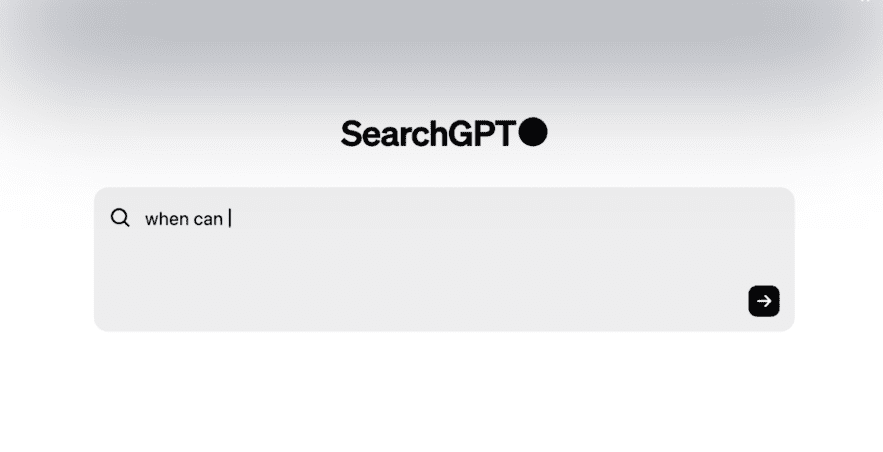OpenAI, the company behind ChatGPT, has announced its own search engine, SearchGPT. SearchGPT works differently from traditional search engines. Instead of just listing links, it tries to understand what users are looking for and provides direct answers.
The tool pulls up-to-date information from the internet and presents it in a very conversational format. Users can ask follow-up questions, making the search process feel more like talking to someone with so much knowledge in the domain.
The search interface features a large text box asking, “What are you looking for?”
After the user’s queries, this tool provides results with summaries and short descriptions of relevant topics. A sidebar allows users to explore related links, and there’s a “visual answers” feature that can display images and even AI-generated videos.
One key feature of SearchGPT is how it handles information sources. The tool provides clear links and credits to the websites it gets information from. This approach aims to support online publishers by directing users to original content. OpenAI says it’s working closely with news organizations and other content creators to ensure fair use of their material.
Recently, Perplexity’s AI search engine faced huge criticism when publishers mentioned that their work is not being properly attributed.
OpenAI says, SearchGPT is designed to help users connect with publishers by prominently citing and linking to them in searches. Responses have clear, in-line, named attribution and links so users know where information is coming from and can quickly engage with even more results in a sidebar with source links.
OpenAI has emphasized that SearchGPT was developed with input from various news partners, including major organizations like The Wall Street Journal and The Associated Press.
This move puts OpenAI in direct competition not just with Google, but also with Microsoft’s Bing and newer AI-focused search engines like Perplexity.
For now, SearchGPT is in its testing phase. OpenAI is accessible to limited users to gather feedback and improve the system. The company plans to eventually integrate these search features into its popular ChatGPT platform. To use this search engine prototype, users can join their waiting list and if accepted, then they will receive an email from OpenAI.
SearchGPT is powered by OpenAI’s advanced AI models, including GPT-4. This allows it to handle a wide range of queries, from general knowledge questions to more specific local information. The tool can also provide visual answers when appropriate.
Google Search is already a hit worldwide, and getting in competition with this search engine is a huge challenge. OpenAI’s entry into the search market is an exciting development in the ongoing AI revolution. The success of this AI tool will depend on how well it can provide accurate, useful results while addressing concerns about content rights and the impact on traditional web traffic.

